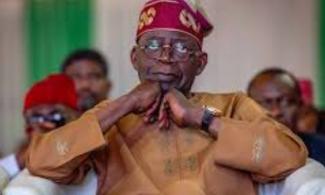The presidency has dismissed claims from opposition circles suggesting that Nigeria’s democracy is under threat and that the country is drifting toward a one-party system under President Bola Tinubu.
In a statement titled “Democracy Strong and Alive in Nigeria,” issued on Sunday by presidential spokesperson Bayo Onanuga, the presidency described the allegations as false and baseless, insisting that democracy in Nigeria remains vibrant and multiparty politics continues to flourish.
Responding to concerns raised over recent defections of opposition politicians to the ruling All Progressives Congress (APC), the statement maintained that President Tinubu’s administration is committed to strengthening democratic institutions rather than undermining them. It also defended the right of politicians to freely associate with any political party of their choice, describing this as a fundamental democratic principle.
“We have read the alarming claims orchestrated by disgruntled opposition figures, some partisan human rights crusaders, and emergency defenders of democracy over the recent defections of key opposition members to the APC,” the presidency said. “Contrary to their accusations, democracy is not under any threat in Nigeria.”
The statement cited the recent defection of Delta State Governor Sheriff Oborevwori, former governor and PDP vice-presidential candidate Dr. Ifeanyi Okowa, and other political figures in Delta State as significant developments that had unsettled opposition parties.
It further accused opposition leaders of hypocrisy, noting that while they celebrated the defection of former Kaduna State Governor Nasir El-Rufai to the Social Democratic Party (SDP) and the formation of an anti-APC coalition, they are now decrying political realignments unfavorable to them.
The presidency stressed that no official policy or action from President Tinubu or the APC seeks to weaken opposition parties or promote a one-party system. It argued that poor organization and internal crises within opposition parties are responsible for their challenges, not any action by the ruling party.
“It is certainly not President Tinubu’s job to organize or strengthen opposition parties,” the statement added. “Accusations of bribery, blackmail, and coercion only exist in the imagination of failed politicians and their agents.”
Onanuga emphasized that political defections are common in democracies worldwide and should not be construed as a threat to Nigeria’s democratic system. He called on all Nigerians to reject alarmist narratives and continue to support democratic values.
“Under President Tinubu, democracy is strong, and the multiparty system will continue to thrive. His administration remains resolutely committed to upholding and strengthening the democratic foundations upon which our Fourth Republic has stood since 1999,” the statement said.
The presidency concluded by urging Nigerians to respect the political choices of others and work collectively to protect democracy.
Nzubechukwu Eze.









